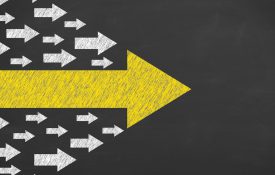-
Can you write your way to happiness?
The Guardian: The premise that keeping a journal is good for you often comes back to the seminal work of American social psychologist James Pennebaker, based at the University of Texas at Austin. In the 1980s, Pennebaker revealed that, compared with writing about a trivial topic, writing about important emotional events for a set period was linked to study participants being emotionally churned up in the short term but making fewer visits to health professionals in the six months that followed. The practice has since been linked by researchers around the world to myriad health benefits, from improving mental health to helping wounds heal faster. ...
-
How To Apply The Brain Science Of Resilience To The Classroom
NPR: Neuroscience isn't on many elementary school lesson plans. But this spring, a second grade class at Fairmont Neighborhood School in the South Bronx is plunging in. Sarah Wechsler, an instructional coach with wide eyes and a marathoner's energy, asks the students to think about the development and progress that they've made already in their lives. ... This year, while continuing the mindfulness program, Turnaround has been applying another set of research findings by training the whole school in growth mindset.
-
Why We Lie: The Science Behind Our Deceptive Ways
National Geographic: In the fall of 1989 Princeton University welcomed into its freshman class a young man named Alexi Santana, whose life story the admissions committee had found extraordinarily compelling. He had barely received any formal schooling. He had spent his adolescence almost entirely on his own, living outdoors in Utah, where he’d herded cattle, raised sheep, and read philosophy. Running in the Mojave Desert, he had trained himself to be a distance runner. ... Most children can’t resist peeking, Lee and his researchers have found by monitoring hidden cameras. The percentage of the children who peek and then lie about it depends on their age.
-

Adults with Autism Make More Consistent Choices
People with autism spectrum conditions are often less sensitive to contextual information in perceptual tasks, but this may lead to more consistent choices in high-level decision-making tasks.
-
A top psychologist changed how I approach my to-do list
Thrive Global: The to-do list and the calendar are like square pegs and round holes. With the rare (or deadline-driven) exception, the time spent completing a task doesn’t fit into polite half-hour chunks. My expectation used to be that I could just drop tasks into my calendar, with the guarantee that those things would get done in the precisely allotted amount of time. ... This insight came courtesy of Georgia Tech organizational psychologist Howard Weiss, who I saw present at this year’s Association for Psychological Science conference in Boston. Read the whole story: Thrive Global
-
How Puppy Photos Can Teach Your Brain to Love Your Partner More
TIME: Couples who looked at images of puppies, babies and pizza, interspersed with photos of their spouse for six minutes every three days reported being more happily married after six weeks. If you think this sounds preposterous and gimmicky — a whole study designed merely to go viral — you are not alone. The guy who did the research found it unlikely too. "I had similar skepticism myself, just based on my own experiences and existing theory of relationships," says James McNulty, a psychology professor at Florida State University and lead author of the paper. Read the whole story: TIME

